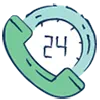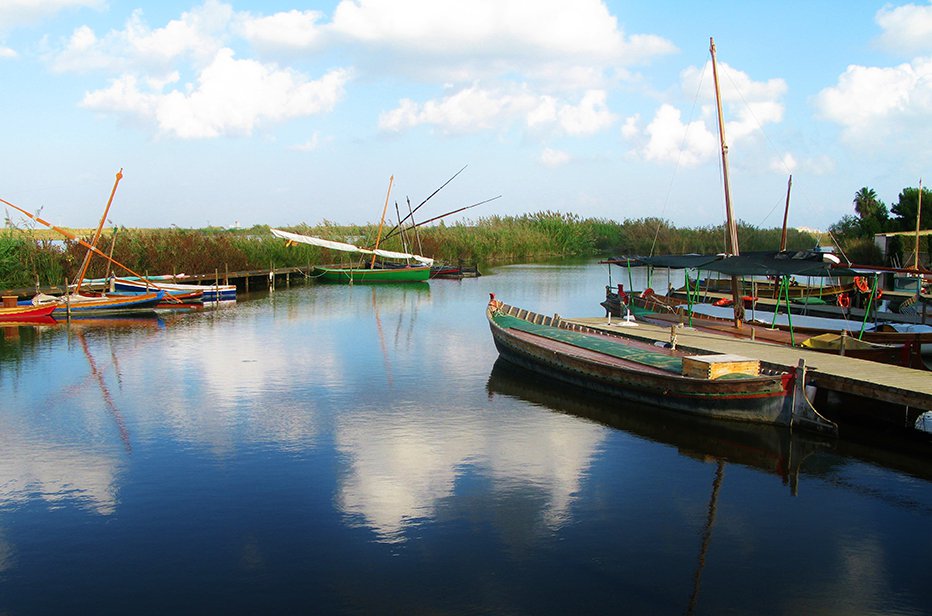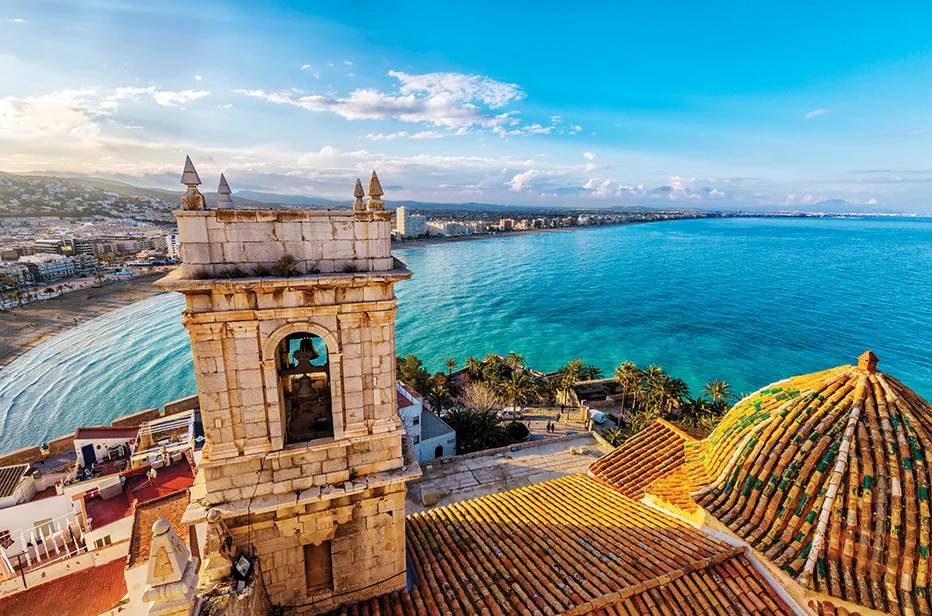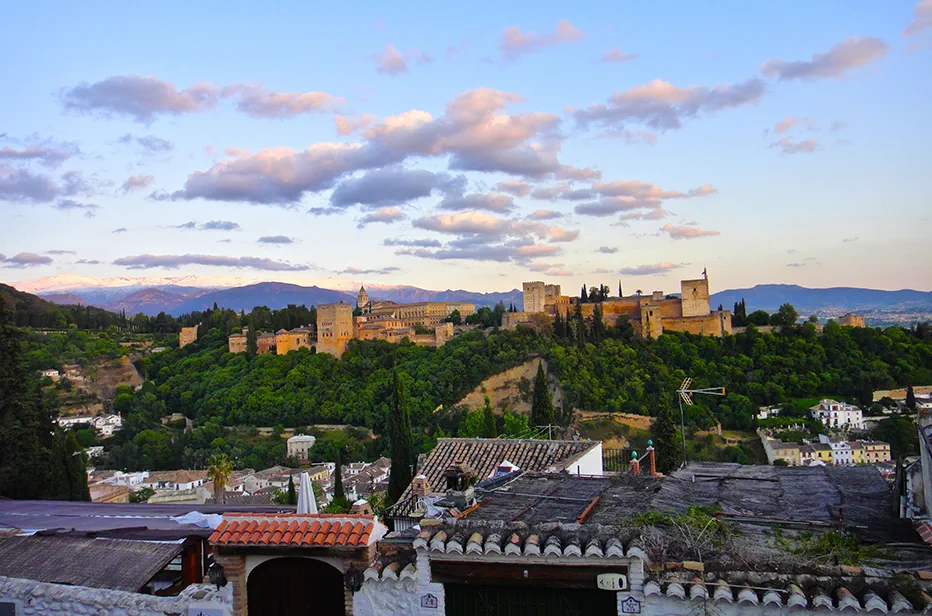Program Overview
Program Overview
-
Popular Subject Areas
Health and Natural Sciences
-
Location
Valencia
-
Host University
Universidad Católica de Valencia
-
Term
Fall 4 2024
-
Program Dates
Aug 29, 2024 - Dec 21, 2024
-
Program Length
Semester
-
Application Deadline
Jun 01, 2024
-
Forms and Payment Deadline
Jun 15, 2024
-
Credit
12 Credits
-
Eligibility
2.50 Minimum GPA*
-
Cost
$14,750
- Apply Now
Study Abroad Program Description
Alongside a variety of courses strongly focused on health, sciences, business, and humanities that are taught in English, you could have the opportunity to get hands-on experience in a field of choice by participating in the host university internship course or other service-learning courses.
Courses are taught by the host university faculty and are taken with other international students, local students, or a mixture of both. If you are taking courses in Spanish, a language placement exam will be issued to you on-site. Courses are taken at the UCV-Godella campus on the outskirts of the city of Valencia.
A Spanish student visa is required for U.S. students participating in academic programs in Spain lasting 91 days or more. For non-U.S. citizens, you should contact your consulate to verify specific entry requirements. Please click on the "Spanish Visa Support" icon on the "What's Included" tab of this page to learn more about visa requirements and and the optional Spain Visa Service.
Enjoy Flexibility with ISA Flex
We’ve partnered with Arizona State University (ASU) to help you overcome common study abroad challenges by adding an ASU Online course to your ISA program. With more than 2,100 courses to choose from, ISA Flex minimizes academic challenges, like major requirements and limited course options, so you can make the most of your experience abroad. Once you’ve applied, access the Flex form in your ISA Student Portal for more information on how to add this to your program and enroll in the course you need.
*Eligibility
MINIMUM GPA
Students must have a minimum grade point average of 2.50.
MINIMUM ADMISSIONS PREREQUISITES
There is no language prerequisite for this program.
What's Included
Comprehensive Advising and Support

24-Hour Emergency
Comprehensive Health, Safety, and Security Support
Airport Reception
Spanish Visa Support
Tuition at the Host University
Housing
Meals and Laundry Service
Bridging Cultures Orientation
Full-Time Resident Staff
On-Site ISA Offices
Internet Access
ISA Discovery Model
Excursions
Cultural Activities
Insurance
Official Transcript from the Host University
Professional Development Toolbox
Scholarship Opportunities
Academics
Credits
Credits
12
Recommended U.S. Semester Credits
12
Recommended U.S. Quarter Units
18
Academic Information
Course Availability
- Please note that the UCV has the right to cancel or close a course at any time.
Language Level Recommendation
- It is recommended thatt if you have not yet completed one semester/quarter of college-level Spanish or the equivalent elect to take a language course through the program.
Course Selection
- Courses and course hours of instructions are subject to change. Please note that courses forthis session have yet to be confirmed. Below are the courses that have been offered in past semesters. Once the course offering is confirmed, this disclaimer will no longer appear.
- Requests for sample syllabi can be made to the ISA Valencia Program Manager.
- Some courses may charge an additional fee due to labs, etc. For example, the Professional Training course has an additional €500 lab fee. if taken - you are responsible for paying should you take the course. Please contact the Program Manager for more information about the courses that require an additional fee.
Additional Course Requirements (Internship course/Social Justice course)
- If you are interested in the Internship placement or Social Justice course must apply for an FBI background check. It can take about 14 weeks for an FBI background check to be processed, so we recommend that you use an official Channeler at an extra cost as to cut down on wait times and help move the process along much quick. You can see the list of approved Channeler's on the FBI website. The background check will need to be brought to Spain.
Course Credit
- Credits earned vary according to the policies of the students' home institutions. According to ISA policy and possible visa requirements, you must maintain full-time enrollment status, as determined by your home institution, for the duration of the program.
- This program includes 12 credits (4 courses). If you wish to enroll into a 5th course can do so at an additional cost. Please contact the Valencia Program Manager for further details.
Transcripts
- The transcript from the UCV will reflect U.S. credits for each course listed below. Please be in touch with your home university regarding credit transfer for this program
Courses
select allclear all
Course Disclaimer
- Courses and course hours of instruction are subject to change.
Support & Funding
ISA is here to support you when it comes to navigating identity questions related to traveling abroad, providing resources and information for your accessibility needs, and identifying funding for your program abroad.
SUPPORT TEAM
Our U.S. staff is available to support you though every stage of your study abroad journey. Please reach out with any questions about ISA programs or life on-site to your country-specific Program Manager.
Our on-site staff are there for you as soon as you arrive in country and will support you throughout your time abroad.
Identity Resources
Accessibility & Accommodations
With our wide portfolio of program types and locations, we’re confident there is a suitable, accessible program for each student.
Securing accommodations abroad can take time, so we ask that those with requests inform ISA early in the advising process. We recommend reaching out to your Program Manager or our Accessibility Team (accessibilityteam@worldstrides.com) to discuss your accessibility needs or accommodations abroad.
Destination Information
Our diversity pages for each ISA destination include information on Indigenous communities, languages, race and ethnicity, religion, LGBTQIA+, and disability access. We hope it will help when reflecting upon and contextualizing intersectionality in your host community.
Identity Blog
ISA offers students the opportunity to blog about their experiences abroad from their own diverse perspectives. These posts can be found on the ISA Student Blog, and interested students should email diversity@studiesabroad.com for more information.
Funding
All students should have the opportunity to study abroad. To help make this a reality, ISA offers a variety of scholarships to help cover your study abroad costs. To learn more about our scholarship opportunities, check out our scholarships & grants page!
If you receive financial aid from your home university, you can likely use those funds for study abroad, as well. Speak with your home university’s financial aid office to learn about your options. Check out steps for using financial aid.
Questions about scholarships and funding? Email us at higheredfinaid@worldstrides.org
Housing
Studying abroad in Spain gives you the opportunity to experience various aspects of the Spanish culture you wouldn't otherwise have. Depending on your housing option, you will either be within walking distance to your university or conveniently located near public transit routes. Travel times to the various university buildings (with the exception of the Residencia to the UCV and FSU) generally range between 15 and 40 minutes will be contingent on housing and class locations. With an open and adaptable mind, the experience of living in another culture can be highly rewarding.
We strive to match your housing preferences with our available accommodations, however, housing preference requests cannot be guaranteed.
Apartment
Apartments are a great housing option if you are seeking complete independence during your time abroad. Apartments are assigned on a first-come, first-served basis, and availability is limited. Rent and utilities are included in the program price, and each apartment is fully furnished. Apartments, spread throughout the city, typically house three-five ISA students, with shared room occupancy. Meals and laundry service are not included.
In this ISA housing option, you will pay a $300 security deposit. ISA may retain some, or all, of this deposit in the event of damage to property, or if utility usage exceeds the allotted monthly amount.
Homestay
Host families are a great choice if you are seeking full linguistic and cultural immersion during your time abroad. Each host family has been carefully selected by ISA’s resident staff in order to best accommodate your needs and to ensure a comfortable situation. Homestays will provide three meals a day and laundry service once a week. You will typically share a room with another ISA student of the same legal gender. Single rooms may be available for an additional fee.
Independent Housing
You may elect to secure housing independently. If you select this option, you will receive a discount equal to the housing portion of the program price.
Student Residence
The student residence is a great choice if you would like to be independent while living with other international and local students. With availability limited on a first-come, first-served basis, you will room with another ISA student of the same gender. Single rooms may also be available for an additional fee. You will have access to laundry facilities. If attending the FSU Student Center or the Universidad Catolica de Valencia, the student residence option may not be the housing best option as the commute will be around an hour depending on the transportation used.
In this ISA housing option, you will pay a $300 security deposit. ISA may retain some, or all, of this deposit in the event of damage to property, or if utility usage exceeds the allotted monthly amount.
Excursions
THERE’S MORE TO DISCOVER WITH ISA

Albufera

Peñíscola
Peñíscola is located on the coast of eastern Spain and is known as the City in the Sea. Walking through its small and old streets, you will feel the sensation of traveling within the ancient ages. During the trip, you will visit the old town of Peñíscola, explore Pope Luna’s Castle, and take in some breathtaking views of the sea.

Granada
Granada is a picturesque and mountainous university town. It has always been a multicultural city and was the last Moorish stronghold during the Catholic reconquest of Spain. You will explore Granada’s multicultural past through visits to historic neighborhoods like the Albaicín and Realejo. During an unforgettable evening flamenco show, you will have the chance to soak up Spanish music and culture. You will also visit important cultural sites including the Alhambra fortress, Spain’s most popular tourist attraction.

Cultural Activities in Valencia
The ISA on-site team encourages you to explore the city and culture of Valencia. The team facilitates this by offering a robust calendar of events that showcases what makes Valencia special.
These activities vary each term, and previous offerings have included cooking classes, a visit to the Ciudade de Artes & Ciencias museum campus,a bike rental for a relaxing jaunt around the city, and more!





